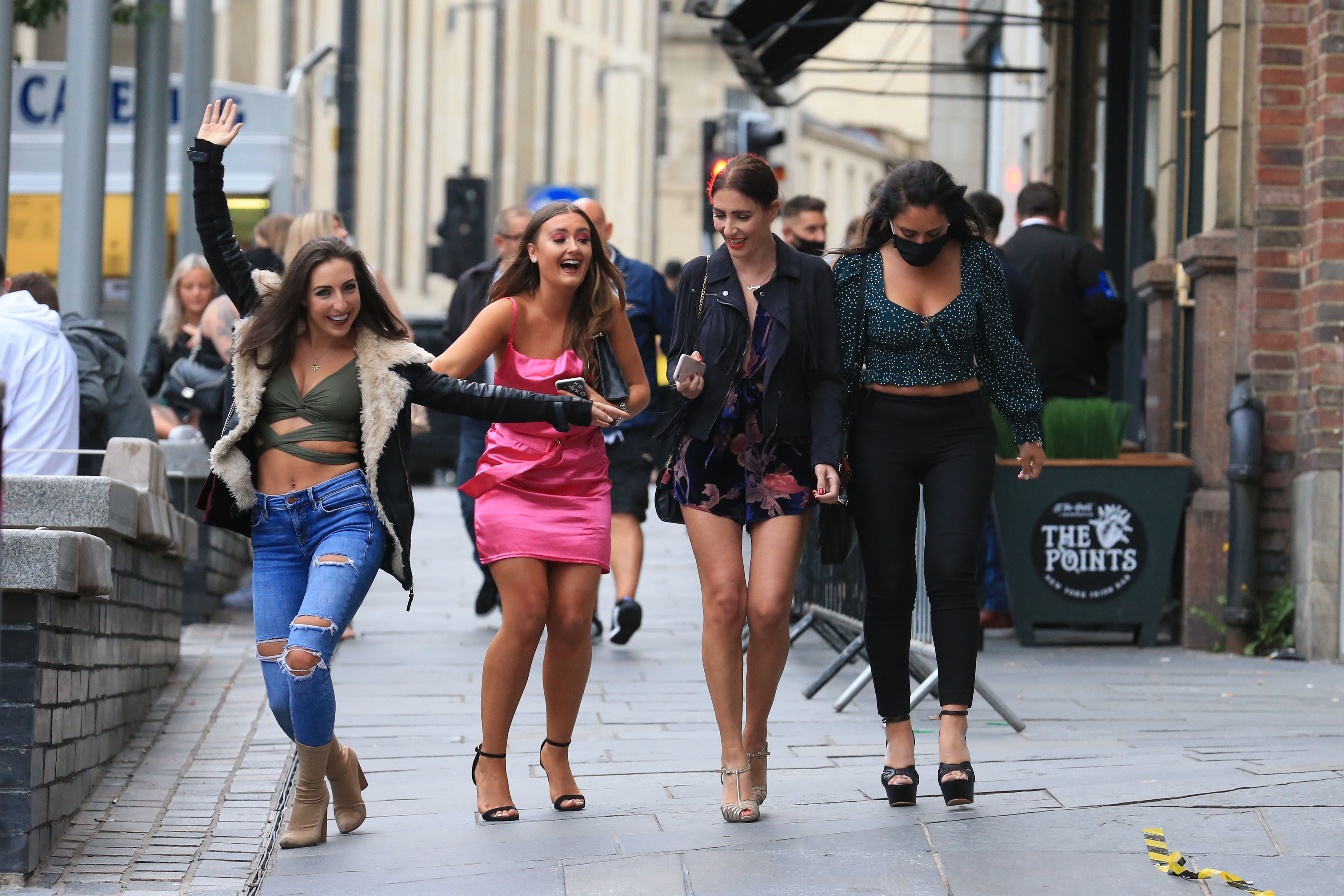The Independent's journalism is supported by our readers. When you purchase through links on our site, we may earn commission.
Science reveals why women who wear less on nights out don’t get as cold
Study refers to Cardi B’s 2014 claim: ‘A hoe never gets cold’

Cold weather might be around the corner, but that doesn’t mean going-out attire will look any different in the coming months, prompting many to question whether these minimally dressed club-goers are cold.
However, while it is often assumed that late-night revellers who have a significant amount of skin exposed must feel the effects of the low temperatures, a new study has found that may not be the case.
According to a study published in the British Journal of Social Psychology, and outlined by one of the study authors Roxanne Felig on TikTok, women who look “hot” or who are more focused on “self-objectification” do not feel cold.
As explained by Felig in a recent TikTok, the study, titled: “When looking ‘hot’ means not feeling cold: Evidence that self-objectification inhibits feelings of being cold,” was partly based on Cardi B’s 2014 claim that “a hoe never gets cold,” with the study author noting that she and her fellow researchers “wanted to test that scientifically”.
“And so we did. And it is true,” Felig continued.
According to Felig, a social psychology graduate student at the University of South Florida who goes by the username @naia_papaia on TikTok, the researchers began by interpreting what the rapper was saying as she “was too focused on how she looked and what she was wearing to feel cold”.
The study author then explained that the statement aligned with objectification theory, which claims that, when women are “highly focused on how they appear externally, it reduces the amount of cognitive resources that they have available to appraise their internal states”.
“So, when women are in a state of objectification, they are less aware of how hungry they are, their heartbeat,” Felig continued. “They are just less able to recognise their internal states.”
In the study, the researchers noted that “standards for women’s appearance have prioritised beauty over comfort,” and that “far from protesting these painful fashion trends, women themselves are often their most vehement supporters”.
“Today, a prominent example of enduring discomfort for the sake of fashion is seen in cities around the world, where even on winter nights, many women expose more of their body than they cover when out for an evening of fun,” the study introduction continued, with the researchers referencing “Geordie Girls,” who are often seen out in minimal clothing even on cold nights.
Based on this phenomenon, the researchers hypothesise in the study’s abstract that, when women are in a state of self-objectification, it can be used to explain the “oft‐observed phenomenon where women wearing little clothing appear unbothered by cold weather”.
To test the theory, the study authors surveyed women standing outside of nightclubs on cold nights, when temperatures were in the 40F to 50F range, with the researchers asking the women to assess their state of self-objectification and how cold they felt. They also asked how intoxicated they felt and how many drinks they had had.
The researchers then took anonymous photos of the outfits worn by the women, which were then coded for amount of skin exposure.
Ultimately, the researchers found that their hypothesis stood up, with the abstract noting: “Our hypothesis was supported: women low in self‐objectification showed a positive, intuitive, relationship between skin exposure and perceptions of coldness, but women more highly focused on their appearance did not feel colder when wearing less clothing.”
In the TikTok, Felig added that the study found there was “literally no relationship” between amount of skin exposure and how cold the women felt.
“It can be inferred that they are too preoccupied with thinking about their external appearance to think about their internal sensation,” she added. In the comments, she also acknowledged that “there is nothing wrong with being hot” and that, although she doesn’t like to call women “hoes,” it was a “good intro to the study”.
With the study, which also notes that “women self-objectify more than men,” the researchers said it provides the “first scientific exploration of why in a sexually objectifying culture, for many women, looking ‘hot’ means not feeling cold”.
The Independent has contacted Felig for comment.
Join our commenting forum
Join thought-provoking conversations, follow other Independent readers and see their replies
Comments


Bookmark popover
Removed from bookmarks